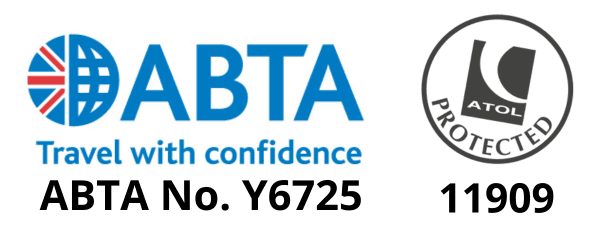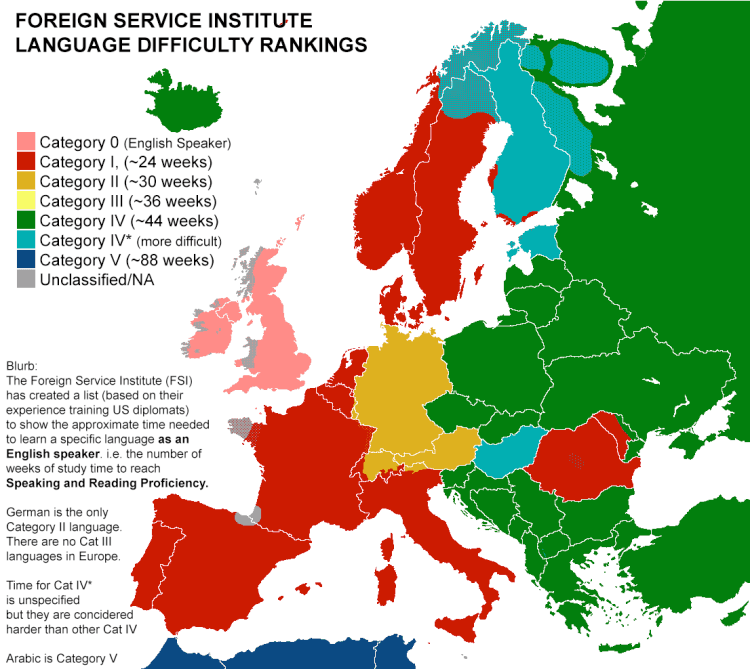Learning a new language
The thought of learning a new language can be daunting, but it doesn’t have to be.
One of the biggest factors which impacts the decision to take up a new language is the time which you would have to dedicate to it. Learning a language, unfortunately, cannot be done overnight but it may not take you as long as you’d think.
The US Foreign Service Institute has created a scale which shows the different levels of difficulty different languages have. What this does is easily illustrate the levels, measured in weeks, for a native English speaker to learn groups of languages.

A few hours a day for a few weeks and you too could have a new skill!
So from this, if you want to ease yourself in gently to learning something new, you can take up French or Italian. It would take roughly just 2 hours each day practicing to be able to speak the language at a basic fluent level in 23 weeks.
If you fancied a challenge, at 2 hours a day a group 3 language, such as Russian or Vietnamese, would take an extra 10 weeks.
This guide suggests you would roughly be a B1 Independent level of fluency on the The Common European Framework of Reference for Languages proficiency scale. Based on this, whilst you wouldn’t necessarily be as fluent as a native speaker in this time frame, you would be able to independently hold a conversation with someone who was.
It’s not an easy skill to pick up quickly, yet with the right mindset and determination you can really improve your foreign language skills in a matter of weeks. At 2 hours a day, you could factor this into your schoolwork, around your homework and even practice with your friends at lunchtime or on your way home from a school day. You could even pick a language partner and make the learning process interesting and exciting with a buddy, because after all the best way to learn is to have fun whilst doing it.
Another brilliant way to learn or improve your language skills is to work abroad. Within these suggested time frames, you could always throw yourself into a work experience aborad placement or internship and get learning whilst you are actually in the country itself. Brilliant right? What about a language course or a stay with a host family. If you are living with native speakers, you will pick up the language faster and even get some more colloquial lingo nailed that tuition courses might not teach you.
Convinced yet? You should be. Learning a language is both challenging and rewarding, and a skill set that will come in handy for life. If you still need convincing, check out our 5 reasons why to study a language poster.









0 Comments